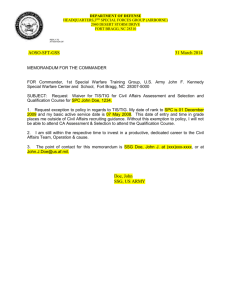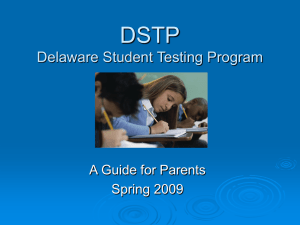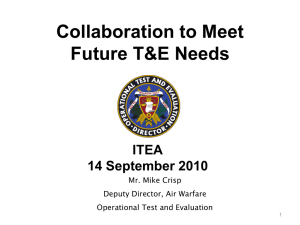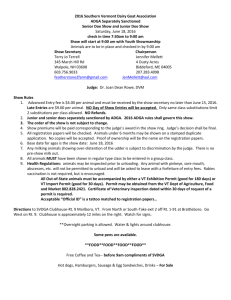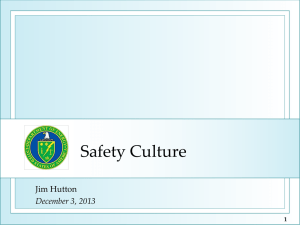Document Number - Hawaii State Board of Education
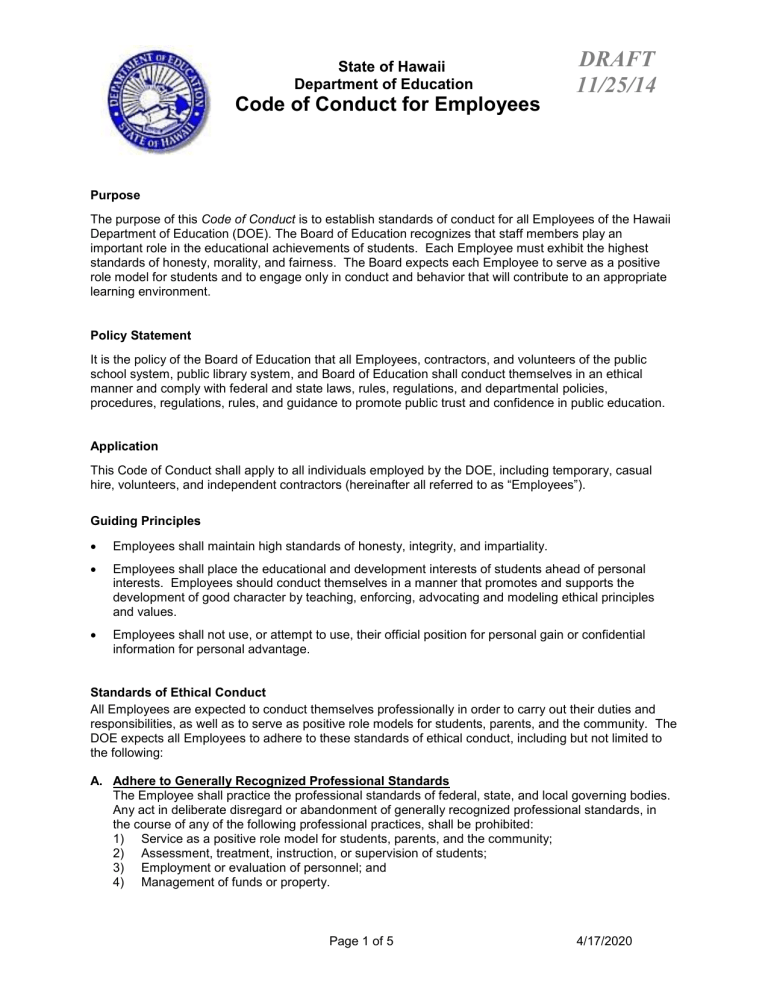
State of Hawaii
Department of Education
Code of Conduct for Employees
DRAFT
11/25/14
Purpose
The purpose of this Code of Conduct is to establish standards of conduct for all Employees of the Hawaii
Department of Education (DOE). The Board of Education recognizes that staff members play an important role in the educational achievements of students. Each Employee must exhibit the highest standards of honesty, morality, and fairness. The Board expects each Employee to serve as a positive role model for students and to engage only in conduct and behavior that will contribute to an appropriate learning environment.
Policy Statement
It is the policy of the Board of Education that all Employees, contractors, and volunteers of the public school system, public library system, and Board of Education shall conduct themselves in an ethical manner and comply with federal and state laws, rules, regulations, and departmental policies, procedures, regulations, rules, and guidance to promote public trust and confidence in public education.
Application
This Code of Conduct shall apply to all individuals employed by the DOE, including temporary, casual hire, volunteers, and independent contractors (hereinafter all referred to as “Employees”).
Guiding Principles
Employees shall maintain high standards of honesty, integrity, and impartiality.
Employees shall place the educational and development interests of students ahead of personal interests. Employees should conduct themselves in a manner that promotes and supports the development of good character by teaching, enforcing, advocating and modeling ethical principles and values.
Employees shall not use, or attempt to use, their official position for personal gain or confidential information for personal advantage.
Standards of Ethical Conduct
All Employees are expected to conduct themselves professionally in order to carry out their duties and responsibilities, as well as to serve as positive role models for students, parents, and the community. The
DOE expects all Employees to adhere to these standards of ethical conduct, including but not limited to the following:
A. Adhere to Generally Recognized Professional Standards
The Employee shall practice the professional standards of federal, state, and local governing bodies.
Any act in deliberate disregard or abandonment of generally recognized professional standards, in the course of any of the following professional practices, shall be prohibited:
1) Service as a positive role model for students, parents, and the community;
2) Assessment, treatment, instruction, or supervision of students;
3) Employment or evaluation of personnel; and
4) Management of funds or property.
Page 1 of 5 4/17/2020
DRAFT 11/25/14
B. Honesty
The Employee shall maintain honesty in all professional dealings. The Employee shall not engage in conduct involving any form of dishonesty, falsification, deception, misrepresentation or cheating.
C. Representation of Information in the Course of Professional Practice
The Employee shall not deliberately falsify, misrepresent, or omit material information concerning any of the following:
1) Statement of professional qualifications;
2) Application or recommendation for employment, promotion, or licensure;
3) Representation of completion of education, training, certification or professional development credits;
4) Completion of any official DOE forms and/or records;
5) Evaluation or grading of students
6) Evaluation of Employees;
7) Financial or program compliance reports submitted to state, federal, or other governmental agencies;
8) Any information provided during the course of an internal investigation or an official inquiry by which an Employee is the subject of the investigation, where that Employee shall be given adequate notice of the allegations and may be represented by his/her union representative.
It is noted that it is a criminal offense to falsify Government records.
D. Ethics & Conflicts of Interest
1) An Employee shall not engage in, directly or indirectly, any actions, activities, practices, political activities, or other employment or conduct which conflicts with his/her duties and responsibilities in the DOE.
2) The Employee shall not solicit any current students or parents of students to purchase equipment, supplies, or services in a private remunerative capacity.
3) A teacher shall not tutor for remuneration students currently assigned to his or her class(es).
4) No school Employee may accept gifts from any person or group desiring to do or doing business with the DOE unless such gifts are instructional products or advertising items of nominal value that are widely distributed.
5) This rule shall not restrict performance of any overtime or supplemental services at the request of the immediate supervisor; nor shall it apply to or restrict the acceptance of gifts or tokens of minimal value offered and accepted openly from students, parents, or other persons in recognition or appreciation of service.
6) An Employee must disclose to his or her immediate supervisor, any situation in which there may be a conflict of interest, or a potential conflict of interest, on the applicable form(s) (“Notice of
Conflict of Interest SelfDisclosure Form” or “Notice of Conflict of Interest Self-Disclosure Form –
Recruitment and Employment Actions”).
7) Our hiring and personnel decisions will be fair and objective. Due to the potential for perceived or actual conflicts, Employees are restricted from hiring and supervising immediate family members.
“Immediate family member” is defined as one of the following: parent, child, grandparent, grandchild, brother, sister, husband, wife, partner, and cohabitating couples. The hiring supervisor is responsible for ensuring compliance. No exception to this Code of Conduct will be made without the written consent of the Assistant Superintendent of the Office of Human
Resources (OHR) prior to any personnel action in question.
Page 2 of 5 4/17/2020
DRAFT 11/25/14
E. Appropriate Interaction with Students
The DOE is committed to providing a caring environment conducive to the physical, mental, social, and emotional well being of students while they are participating in school activities. Therefore,
Employees who interact with students will maintain appropriate student/teacher and adult/child relationships.
1) The Employee shall not commit any abusive act or sexual exploitation with, to, or in the presence of a student, whether or not that student is or has been under the care or supervision of that
Employee, as defined below: a) Any use of inappropriate language that is considered profane, vulgar or demeaning; b) Any sexual act; c) Any solicitation of a sexual act, whether written, visual, verbal, or physical; d) Any act of child abuse, as defined by law; e) Any act of sexual harassment, or any other type of discrimination, as defined by law; f) Any intentional solicitation, encouragement, or consummation of a romantic or physical relationship with a student, or any sexual contact with a student. The term “romantic relationship” shall include dating a student.
2) No DOE Employee is authorized to conduct a strip search of a student.
3) No physical punishment of any kind may be inflicted upon any student. An Employee may only use force when the force is reasonable to restrain a student from hurting himself/herself or any other person or property.
4) An Employee is strictly prohibited from discriminating against, including harassing, any student based on his/her race, color, national origin, sex, disability, and/or age.
5) The DOE also prohibits any Employee from harassing or bullying a student for any reason, including, but not limited to gender identity and expression, socio-economic status, physical appearance and characteristic, and sexual orientation.
F. Confidential Information
The Employee shall maintain the confidentiality of all information considered confidential, including but not limited to student information, student records, personnel files, and Employee information, unless disclosure is required pursuant to the Freedom of Information Act, Family Education and
Privacy Rights Act, state of federal law, or is necessary for the personal safety of the student or others.
G. Non-Discrimination and Anti-Harassment
The DOE is committed to maintaining a workplace free from discrimination and harassment.
Therefore, Employees shall not discriminate or harass a person because of his/her race, sex, including gender identity or expression, sexual orientation, age, religion, color, ancestry, national origin, disability, marital status, arrest and court record (except in determining whether a person is suitable for working in close proximity to children, as permitted by HRS section 302A-601.5), domestic or sexual violence victim status if the employer has received notice or has knowledge of such status, income assignment for child support, national guard absence, breastfeeding, citizenship status, veteran’s status, or any other basis protected by federal or state law.
H. Anti-Bullying
DOE will not tolerate bullying behavior. Bullying is defined as inappropriate behavior, either direct or indirect, whether verbal, physical, psychological or otherwise, conducted by one or more persons against another or others, which is repeated over time. It is noted, however, that isolated or one-time incidents of intentional inappropriate behavior may not fall within the definition of bullying may still be considered inappropriate and subjected to corrective action.
I. Mandatory Reporting
The Employee shall make all reports required under Chapter 19, Student Misconduct (HAR §8-19),
DOE Regulation 4200.4
Reporting of Child Abuse and Neglect, and any other federal or state laws or
DOE policies or procedures which requires mandatory reporting.
Page 3 of 5 4/17/2020
DRAFT 11/25/14
J. Drug and Alcohol Free Workplace
The unlawful manufacture, distribution, possession, sale or use of any illegal drug, any inappropriately used prescription drug, or any alcohol by all officers and Employees of the DOE is strictly prohibited on school premises, in DOE offices, and/or as part of any DOE-sponsored activity, whether or not the activity is performed on campus. Reporting for duty or remaining on duty while under the influence of, or impaired by any illegal substance, inappropriately used prescription drug, or alcohol is also prohibited.
K. Safe Workplace & Safe Learning Environment
All Employees are responsible for maintaining a safe and harmonious work environment. Workplace violence will not be tolerated under any circumstances. Workplace violence includes but is not limited to acts involving physical attack, property damage, as well as verbal statements that a reasonable person would perceive as expressing or suggesting intent to cause physical or mental harm to another person.
The DOE is also committed to maintaining a safe and healthy learning environment for students.
Intimidation, bullying, harassment and discrimination of students under any program, services, or activity of the DOE are prohibited.
L. Appropriate Use of DOE Funds and Property
The Employee shall not misuse government funds or property, funds or property of a school- or workrelated organization, or colleague’s funds or property.
M. Authorized Professional Practice
The educator shall not perform any act as an Employee in a position for which licensure is required by the rules of the Hawaii Teacher Standards Board (insert authority/rule/law) during any period in which the educator’s license has been suspended or revoked.
N. Non-Retaliation
The Employee shall not threaten, harass, punish or discriminate against any Employee who in good faith reports, discloses, divulges, or otherwise brings to the attention of the DOE management any practices or actions believed to be inappropriate under this Code, or in violation of any DOE policies or procedures, or state or federal laws.
O. Appropriate Use of Electronic Communication, Technology, and Internet
All Employees shall limit access to the Internet and use of DOE-issued technology such as cellular phones, wireless devices, computers, and software for business transactions and business communications necessary to conduct the work of their job as a DOE Employee. Employees shall use DOE networks and Internet in accordance with the DOE Acceptable User Guidelines.
Responsibility to Comply
It is each Employee ’s responsibility to ensure compliance with all provisions of this Code and seek guidance where necessary from their supervisor, manager or Human Resources. To “do the right thing” and ensure the highest standards of integrity is each Employee ’s personal responsibility. When in doubt,
Employees should look to the Guiding Principles stated at the beginning of this Code. Any failure to comply with this Code may result in disciplinary action, including the possibility of termination and, if warranted, legal proceedings or criminal sanctions.
Reporting Violations
Employees shall report any practices or actions believed to be inappropriate under this Code or illegal to their supervisor, manager, or Human Resources. If it is appropriate, in view of the nature of the reported matter, reports of violations may be made directly to higher levels including the Complex Area
Superintendent or Assistant Superintendent, Deputy Superintendent, or the Superintendent. Complaints
Page 4 of 5 4/17/2020
DRAFT 11/25/14 may also be made on a confidential basis through the Superintendent’s Hotline or the Fraud & Ethics
Hotline. The DOE prohibits retaliation against any individual for such reports made in good faith.
Attempts to use the DOE’s policies to libel, slander, or otherwise harm another individual through false accusations, malicious rumors, or otherwise irresponsible actions are prohibited.
Investigations of Suspected Violations
The manager, principal, complex area superintendent, or other appropriate manager will review complaints. If warranted, an investigation will be conducted. Each Employee is expected to cooperate in the investigation of suspected violations.
Hotline Access
Superintendent’s Hotline
(808) 586-3587
Fraud & Ethics Hotline
(855) 233-8085
E-mail: reportlineweb.com/hidoe
REFERENCES
Board of Education Policy 1200-1.19 Employee Electronic Communication and Technology Use and
Access Policy
Board of Education Policy 1200-1.41
Employee, Contractor, and Volunteer Ethics and Conflict of
Interest Policy
Board of Education Policy 1200-1.42
Accountability Policy
Board of Education Policy 2170 Internet Access Policy
Department of Education 2170.1
Internet Access Regulations
Board of Education Policy 4200 Student Safety and Welfare Policy
Department of Education 4200.4 Reporting of Child Abuse and Neglect Regulations
Board of Education Policy 4211 Anti-Harassment, Anti-Bullying, and Anti-Discrimination Against
Students by Employees Policy
Board of Education Policy 4610 Student Information and Confidential Records Policy
Board of Education Policy 5511 Personnel Relations and Employee Benefits Policy
Department of Education Drug-Free Workplace Statement
Hawaii Administrative Rules, Title 8, Chapter 19 Student Misconduct, Discipline, School Searches and
Seizures, Reporting Offenses, Police Interviews and Arrests, and Restitution for Vandalism
Hawaii Revised Statutes, Chapter 84 Standards of Conduct (for State Employees)
Family Educational Rights and Privacy Act (FERPA)
Page 5 of 5 4/17/2020
